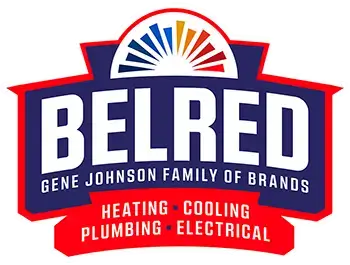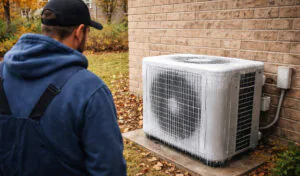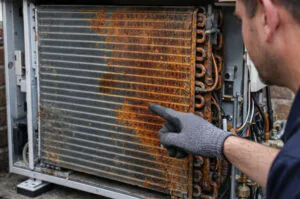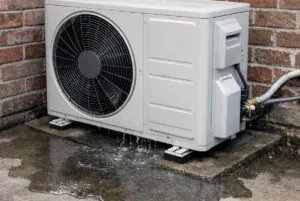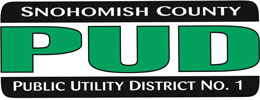Most homeowners in the Seattle area are looking for ways to save money and use resources more wisely. Water is one of those resources we often take for granted, but rising utility costs and environmental concerns are making people think twice about how much goes down the drain.
That’s where greywater systems come in. Instead of letting water from showers, sinks, and laundry machines wash away, these systems repurpose it for irrigation or other uses. With some planning, they can cut bills, reduce waste, and keep gardens green year-round.
What Is Greywater?
Greywater is the relatively clean wastewater from sinks, showers, bathtubs, and laundry. It doesn’t include sewage from toilets (known as blackwater), but it may contain traces of soap, dirt, and grease. When properly filtered, greywater can safely be reused for irrigation or other non-drinking purposes.
What Is a Greywater System and How Does It Work?
A greywater system captures wastewater from household sources and directs it into a separate set of pipes before it reaches the sewer. Instead of being discarded, this water is filtered and rerouted outdoors. Simple systems may just use a diverter valve to send water directly to landscaping, while more advanced setups include holding tanks, pumps, and filters for larger or more complex properties.
The treatment process depends on the design of the system. Some greywater is immediately used for irrigation with minimal filtering, while other systems run the water through filtration units that remove soap residues and particles. Once filtered, the water is distributed through underground pipes or drip irrigation systems that keep plants watered without overspray. The key is that this water is never used for drinking, but it can be extremely valuable for lawns, trees, and gardens.
What Are the Main Benefits of a Greywater System?
Greywater systems aren’t just a trendy eco-upgrade, they bring real value to homes and families.
- Lower water bills: By reusing greywater for irrigation, you’ll need less city water. Over time, this leads to noticeable savings, especially during Seattle’s drier summer months.
- Eco-friendly living: Instead of wasting water, you’re recycling it. This reduces strain on municipal systems and lowers your household’s environmental footprint.
- Healthier landscaping: Greywater often contains nutrients from soap or food particles that can actually benefit plants when properly managed.
- Resilience during droughts: If restrictions are ever placed on outdoor water use, a greywater system ensures your yard still thrives.
- Reduced wastewater discharge: Less water is sent into the sewer system, which benefits the city’s infrastructure and reduces the risk of overflows during heavy rain.
- Supports sustainability goals: Many Seattle homeowners value sustainable choices, and greywater systems are an investment that aligns with community and environmental priorities.
Put simply, greywater systems save money, conserve water, and support a healthier environment, all while giving you more control over how resources are used in your home.
How Does a Greywater System Deal With Soaps and Detergents?
One common question is whether soaps and detergents in greywater make it unsafe. In reality, most modern systems are designed to handle these small amounts. The key is choosing soaps that break down easily and won’t harm soil or plants.
Basic greywater setups often allow particles and residues to settle or filter out before water reaches your yard. More advanced systems use fine filters or biofilters to further clean the water. These measures prevent buildup of chemicals and ensure long-term soil health.
So, while soaps are part of the equation, they aren’t a dealbreaker. Homeowners just need to be thoughtful about what products they use and how their system is set up.
What Soaps and Detergents to Avoid if You’re Using a Greywater System?
Not all soaps are created equal, and some can do more harm than good in your soil.
- Products with sodium or salt-based ingredients: These can damage soil structure and harm plants by making it harder for roots to absorb water.
- Boron-containing detergents: While useful in cleaning, boron is toxic to many plants, causing yellowing and eventual death if levels build up in soil.
- Chlorine bleach: Strong disinfectants like bleach can kill beneficial soil microbes and disrupt the natural balance plants rely on.
- Synthetic fragrances: These may contain chemicals that linger in the soil and harm delicate root systems.
- Phosphates: Once popular in detergents, phosphates can cause algae growth in runoff and damage the surrounding ecosystem.
Avoiding these products protects both your garden and the surrounding environment. A greywater system works best when paired with plant-friendly cleaning habits.
What Soaps and Detergents to Choose if You’re Using a Greywater System?
Thankfully, there are many safe alternatives that pair perfectly with greywater use.
- Biodegradable laundry detergents: Look for ones labeled as “greywater safe” or “biocompatible,” as they break down quickly and leave minimal residues.
- Liquid soaps: These tend to have fewer salts than powdered options, making them easier on soil and plant life.
- Castile soap: Made from natural oils, castile soap is gentle and safe for plants when diluted in greywater.
- Plant-based dish soaps: Free of harsh chemicals, these are safe for use when greywater is redirected to landscaping.
- Products labeled phosphate-free: These help avoid runoff issues and are safer for the wider ecosystem.
Choosing the right products ensures your greywater system runs smoothly and keeps both your home and your garden thriving.
Seattle Regulations Concerning Greywater Usage and Systems
Washington State law allows greywater use, but there are specific rules to follow, especially in the Seattle Metropolitan area. The Washington Administrative Code (WAC) sets guidelines for how greywater can be collected, treated, and reused. Generally, untreated greywater can only be used for subsurface irrigation, meaning it must be piped underground, not sprayed above ground.
Permits are required for larger or more complex systems. In Seattle, the Department of Public Health often oversees these permits, ensuring that installations meet safety and environmental standards. Systems must prevent pooling or runoff that could contaminate groundwater or neighboring properties.
Homeowners should also be aware that some neighborhoods may have restrictions on system placement. Working with licensed plumbing experts ensures that your greywater setup complies with both city and state requirements, giving you peace of mind and keeping everything legal.
Do Greywater Systems Need Maintenance?
Yes, like any home system, greywater setups need occasional maintenance. Filters should be cleaned or replaced, and pipes should be checked for clogs or leaks. With routine care, most systems run reliably for years and continue to provide consistent benefits.
Who Can Install a Greywater System?
While DIY enthusiasts might be tempted to try, greywater systems require proper design and knowledge of plumbing, soil, and local codes. Licensed professionals are best equipped to ensure your system runs safely and efficiently.
BelRed’s plumbing team is trained to handle these installations. We evaluate your property, recommend the right setup, and make sure it complies with Seattle’s regulations. That way, you avoid costly mistakes and enjoy the benefits from day one.
Contact BelRed for Your Greywater System Needs in the Seattle Area
If you’ve been considering ways to cut costs and live more sustainably, a greywater system may be the perfect fit. It’s a practical solution that puts wasted water back to work in your garden.
BelRed Heating, Cooling, Plumbing & Electrical has decades of experience serving Seattle homeowners. From planning and installation to ongoing support, we’ll help you design a system that works for your home and family. Call us today and discover how easy it is to start saving water and money.
